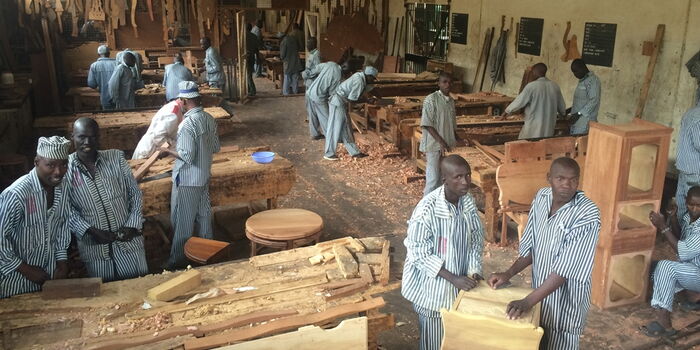Kenya’s lawmakers have once again opened up the debate on whether prisoners should be allowed conjugal visits, as part of a new push for long-overdue prison reforms.
The renewed call came on Thursday, September 11, when the Parliamentary Committee on Constitutional Implementation Oversight (CIOC) toured Kaloleni Main Prison in Kilifi County.
Conjugal Rights as Human Dignity
According to the MPs, recognising conjugal rights is not just about private family matters—it is also about restoring human dignity, improving rehabilitation, and helping inmates reconnect with their loved ones while serving sentences.
Committee chair and Suba South MP Caroli Omondi explained that conjugal rights, along with family rights, are already recognised under the spirit of the 2010 Constitution, but their implementation in prisons is still hanging in the balance due to the lack of a proper legal framework.
“We have discussed the matter of conjugal rights many times, and not just conjugal rights but also family rights. At the moment, you cannot say that people will access conjugal rights because there is no framework law,” Omondi noted.
Call for a Legal Framework
Omondi revealed that the committee is now working on drafting laws and amendments that will create a clear framework for sensitive issues like conjugal visits, voting rights for inmates, and reproductive health services.
“First, there has to be a law. These are things we are working to amend so that we can establish a framework for such matters,” he said, adding that reforms must go beyond comfort to also include constitutional rights that inmates should not be stripped of just because they are behind bars.
Inmates and Prison Officers Engaged
During the visit, the committee held discussions not only with inmates but also with prison officers, with the aim of aligning prison laws with the 2010 Constitution. According to Omondi, many reforms remain incomplete, and unless there is consultation with both sides, real progress will be difficult to achieve.
“We came to speak with the inmates as well as the prison officers so that we can review how to change the laws and align them with the 2010 Constitution, because prison reforms are still not complete,” he said.
Other Challenges Raised
While the debate on conjugal rights caught attention, the MPs also flagged a long list of other challenges that continue to cripple Kenya’s prison system. These include:
- Severe overcrowding, with many facilities holding more than double their intended capacity.
- Chronic underfunding, which has left prisons struggling with outdated infrastructure.
- Inadequate healthcare services, making it difficult for inmates to access even basic medical care.
- A serious shortage of professionals, particularly psychologists, counsellors, and rehabilitation experts, whose services are crucial for preparing inmates to reintegrate into society.
The Bigger Debate
The idea of conjugal visits has been raised several times in the past, but it remains a controversial subject in Kenya, with some people supporting it as a way of humanising prisons and reducing frustration among inmates, while others argue that prisons are meant for punishment, not comfort.
What is clear from the MPs’ latest push is that prison reforms are moving beyond food and infrastructure—they are now delving into fundamental rights and dignity issues.
If successful, these changes could mark a historic shift in how Kenya treats prisoners, turning correctional facilities into true centres of rehabilitation rather than purely punitive institutions.
Join Government Official WhatsApp Channel To Stay Updated On time
https://whatsapp.com/channel/0029VaWT5gSGufImU8R0DO30


